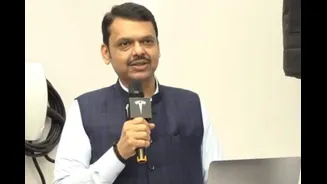Embrace Clear Communication
Effective communication is the cornerstone of any healthy workplace. This involves not only conveying your own ideas clearly but also actively listening
to and understanding others. Avoid assumptions and strive for transparency in your interactions. When faced with disagreements, address them promptly and constructively, focusing on finding solutions rather than assigning blame. Regular check-ins and feedback sessions can also help maintain open communication channels. Being receptive to different communication styles and adapting your approach accordingly enhances understanding and minimizes misunderstandings. Remember, clear communication fosters trust and mutual respect, which are essential for building strong relationships. The goal is to create an environment where everyone feels heard and valued, ultimately leading to a more efficient and positive work experience.
Humor & Lightheartedness
Injecting humor and lightheartedness into the workplace can significantly reduce stress and improve morale. A well-timed joke or a shared laugh can diffuse tense situations and create a more relaxed atmosphere. Of course, it’s important to be mindful of boundaries and ensure that humor is appropriate and doesn’t offend anyone. Focusing on positive aspects and celebrating small wins can also contribute to a more enjoyable work environment. Light-heartedness can humanize interactions and create a sense of camaraderie among colleagues. Consider incorporating fun activities or team-building exercises that encourage laughter and collaboration. A healthy dose of humor can make the workday more manageable and contribute to a more positive overall experience, enhancing both individual and team well-being. Ultimately, a balanced approach to work that includes moments of levity can lead to a more resilient and productive workforce.
Understand Diverse Perspectives
The workplace is a melting pot of different personalities, backgrounds, and experiences. Acknowledging and appreciating this diversity is crucial for building strong relationships. Take the time to understand your colleagues' perspectives, even when they differ from your own. This involves active listening, empathy, and a willingness to learn. By embracing different viewpoints, you can foster a more inclusive and collaborative environment. This allows for more comprehensive problem-solving and better decision-making. Encourage open dialogue where everyone feels comfortable sharing their ideas and opinions. Training programs on diversity and inclusion can also help raise awareness and promote understanding. Building bridges across differences can lead to stronger teams and a more harmonious work environment, as respecting and valuing diverse perspectives is paramount.
Manage Responsibilities Effectively
Overcommitting to tasks can lead to increased stress, decreased productivity, and a decline in mental well-being. It is important to carefully assess your workload and prioritize tasks based on their importance and deadlines. Learning to say no to additional responsibilities when your plate is already full is essential. Effective time management, including the use of tools and techniques like to-do lists and calendars, can help you stay organized and on track. Setting realistic goals and breaking down large tasks into smaller, manageable steps can reduce feelings of being overwhelmed. Regular breaks and self-care are also important for maintaining mental and emotional balance. By managing your responsibilities effectively, you can reduce stress and increase your overall job satisfaction. This helps in building better relationships as it prevents burnout, allowing you to engage more positively with your colleagues.
Conflict Resolution Skills
Conflicts are inevitable in any workplace, but it is how you handle them that truly matters. Developing strong conflict resolution skills can help you navigate disagreements constructively. This includes active listening, empathy, and the ability to see the other person's point of view. Avoid personal attacks and focus on the issue at hand. Seeking win-win solutions is ideal where both parties feel heard and their needs are met. Mediation or involving a neutral third party can also be helpful in resolving complex conflicts. Focusing on finding common ground and collaborating to create better outcomes will create lasting impact. By acquiring effective conflict resolution techniques, you can transform potential conflicts into opportunities for growth and stronger working relationships. This ultimately leads to a more positive and productive work environment.




















